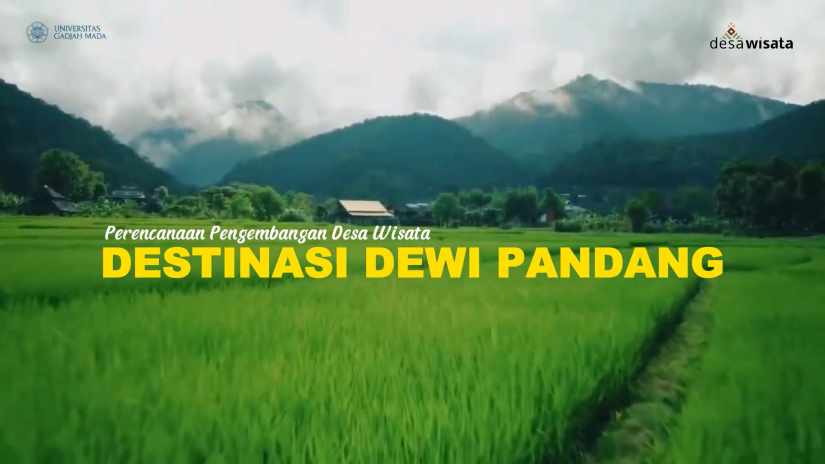
This activity was carried out as an effort to help tourism actors to design sustainable tourism in Dewi Pandang tourist destination. The various activities carried out are also an effort to implement Sustainable Development Goals (SDGs) No. 1: No Poverty, No. 11: Sustainable Cities and Communities, and No. 17: Partnership for the Goals in tourism practices. This activity is part of the implementation of tridarma, namely community service carried out by lecturers of the UGM Tourism Study Program, Runavia Mulyasari, S.Ant., M.A., together with M. Jhony Fonsen (student), and Fatimah Azzahrah, S.Par., alumni of the UGM Faculty of Arts Tourism Study Program.
The Indonesian government through Law Number 10 Year 2009 made tourism as a form of economic development in rural areas. Rural areas are considered to have great potential in the form of natural wealth and cultural values of the community. Integration of rural communities with tourism is done through the development of tourism villages in various regions including in tourist destinations that have developed. However, the planning process of developing tourist destinations into tourist villages often does not receive attention and support from the government. This of course implies that the planning process often does not run smoothly.
However, problems often arise in the process of planning and developing tourist villages. One of them is that the planning of tourism village development is entirely left to the community without intensive assistance from the authorities in developing a sustainable tourism village.
Tourism is a variety of tourist activities supported by various facilities and services provided by various stakeholders involved in tourism activities. According to Law No.1/2009 on Tourism, there are four elements in tourism, namely industry, destination, marketing, and institutions. These four elements are filled by various actors with their respective roles and duties.
In an effort to organize sustainable tourism in rural areas, the government designed the concept of a tourist village that has the principles of economically feasible, environmentally feasible, socially acceptable, and technologically appropriate. To turn an area into a tourist village, it is necessary to pay attention to several criteria, namely seeing the tourism potential in the area, the presence of people who are willing to get involved, having formal institutions, being able to respond to opportunities by providing support in the form of tourist facilities, and having the ability to develop a tourist market.
In the planning process, the community around Dewi Pandang destination needs to identify the existing conditions of various tourism potentials (fisheries, culture, agriculture and MSMEs). This identification process is then derived through a mature tourism development plan as an effort to improve community welfare, preserve nature, and community culture. Strengthening through meeting the potential of the local community can help the implementation of sustainable tourism activities.
The output results in the form of Dewi Pandang planning videos can be accessed through the following link:

